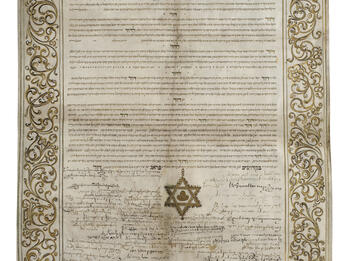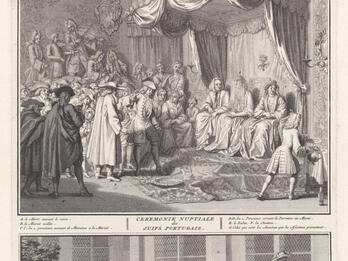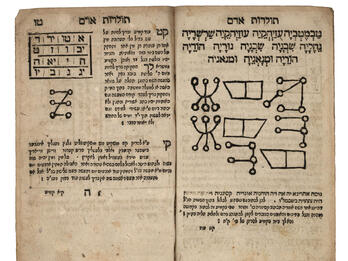Isaac Luria
Isaac Luria was one of the most significant figures in Jewish mysticism, famed for pioneering a new conception of theoretical kabbalah. Luria was born in Jerusalem and, following the death of his father, was raised by his maternal family in Egypt. There Luria studied rabbinic literature and halakhah, while working as a merchant. He embarked on esoteric studies and lived in seclusion on an island in the Nile (allegedly for seven years). In 1569/70, he settled in Safed, where he studied kabbalah with Moses Cordovero. Luria soon began to develop his own innovative kabbalistic system. However, aside from delivering a few homilies in synagogues, he did not often teach in public. Luria himself wrote very little; his teachings were recorded by the disciples that gathered around him. Famed for his saintly conduct, Luria was highly conservative in his interpretation of Jewish law. He was also a poet; his hymns for Sabbath meals, replete with kabbalistic symbolism, appear in prayer books.




